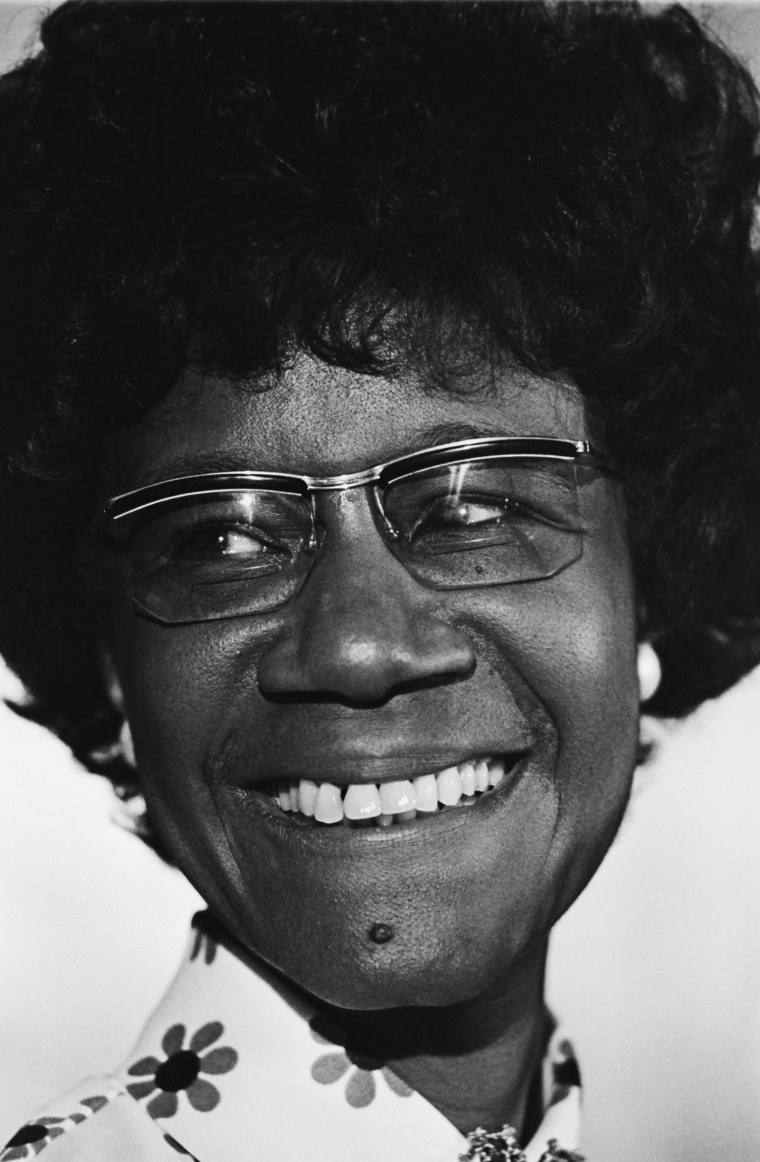Brooklyn congresswoman Shirley Chisholm ran for president in 1972 — only four years after she became the first black woman elected to Congress and less than a decade since the Voting Rights Act gave black Southerners better access to the vote.
"I am not the candidate of Black America, although I am black and proud," Chisholm said in her announcement speech. "I am not the candidate of the women’s movement of this country, although I am a woman and I’m equally proud of that. I am of the candidate of the people of America."
It was gutsy and a long shot from the start. But as Chisholm liked to say, "If they don't give you a seat at the table, bring a folding chair."
Related: Report: Challenges, Opportunities and the Legacy of Shirley Chisholm
A look at Chisholm's candidacy kicks off a new eight-part series, The Contenders, premiering Tuesday night on PBS. It's partially inspired by ESPN's 30 for 30 Series, vividly retelling highlights of 16 "compelling and tumultuous" presidential campaigns. In the first episode, Chisholm is paired with John McCain as a fellow straight-talker.

Unlike McCain, however, Chisholm struggled to get support even from her allies in the women's movement, who eventually left her side to support George McGovern and the nascent black political caucus, members of which, some scholars like Melissa Harris-Perry suggest in the film, thought a black man ought to go first. Still, Chisholm did manage to make history by having her name placed in nomination at the Democratic National Convention that year.
"I’m breaking the ice. The next time a black person runs and a woman runs and they have the ability to guide this country and lead this country, you will know they were serious," Chisholm said in an interview included in the documentary.
McGovern, presumed to be more electable than Chisholm, went on to lose 49 states to Nixon.
It would take 36 years for a black man to be elected president; this year, Hillary Clinton has the chance to break the all-male streak.
"So often that’s how progress is made," said the show's host, OZY co-founder and CEO Carlos Watson. "We all wish everything happened on demand."
Watson said Chisholm's candidacy, long overlooked, has the potential to inspire viewers. "The best thing I’ve heard said is that a wonderful woman on our team in her early 20s started crying [over Chisholm]," Watson said. "She called her 'the hero I never knew that I had.'"
For the political junkies, Watson gathered interviews with the likes of Vice President Joe Biden, former Bush advisers Karl Rove and Karen Hughes, and former Michael Dukakis campaign manager Susan Estrich.
If Chisholm's candidacy carries potential lessons for Clinton's, The Contenders features a campaign that has strong parallels to Donald Trump's without getting as far: Pat Buchanan in 1992.
Along major milestones, the series also offers up lesser-known trivia. Watson's favorite: 1964 Republican nominee Barry Goldwater’s involvement with the NAACP back in the 1940s and his friendship with John F. Kennedy: "They were good buddies."
